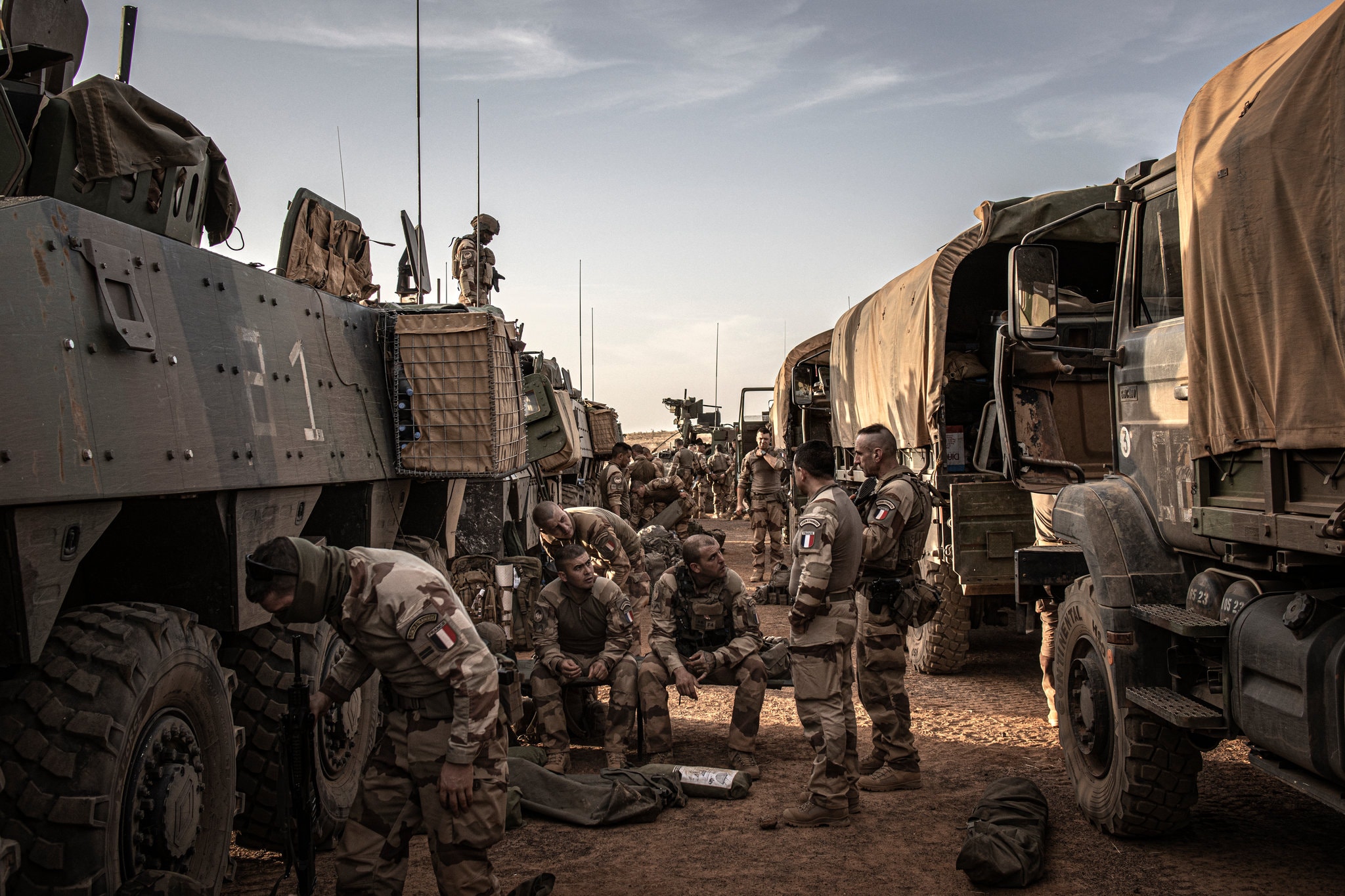By Pierre Tran
Paris – France should pull out of Mali. That is the French media message to the Macron administration, as fatalities rise in what is highlighted as a quagmire.
The new year began with a deadly start, when a homemade road bomb killed Jan. 2 two French soldiers in an armored car, just five days after three soldiers were similarly slain.
That brought to 53 the number of French soldiers killed since 2013 in the Serval and Barkhane operations in the Sahel region, sub-Saharan Africa.
The Barkhane mission seeks to hit armed groups linked to the al Qaeda and Islamic State.
An Ifop opinion poll showed a swing away from public support, for the first time showing 51 percent against the mission in Mali, Le Point weekly magazine reported Jan. 11.
That negative sentiment extended to the French deployment of 5,100 troops in the five allied nations in the Barkhane operation, namely Burkino Faso, Chad, Mali, Mauretania, and Niger, Ifop director Jérôme Fourquet said.
The poll showed a drop of nine percentage points from November 2019, and down 24 points from February 2013. The poll was conducted Nov. 28-29.
A video report on L’Opinion, a news website, set out clearly the case for withdrawing troops: there has been no terrorist attack on French soil from the Sahel region, intelligence chiefs said. The “insurrections” can only be resolved by talks, as the conflicts reflect disputes that date back to before the French colonialism.
A French intervention in Mali may have been needed in 2013, ordered by the then president François Hollande, but today’s problem is how to pull the troops out while avoiding making it look like a failure, the video report said.
“What is France doing in Mali?” a leader in afternoon daily Le Monde asked. Eight years after the intervention ordered by Hollande, the answer is “less and less clear.”
The French forces have killed leaders of the insurgent forces and just manage to hold the line between the Sahel and Libya, with the latter a hornet’s nest, the leader said.
But they are unable to prevent strikes into the heart of Mali, nor the “contagion” into Niger and Burkino Faso, the leader said. France is ready to hold talks with certain elements of the insurgents.
A withdrawal is not just a military matter but a political move which should factor in the needs of local communities and maintain democratic freedom dearly bought, the leader said.
Frosty media relations
The public discussion in France has not been helped by a testy exchange between the press and the armed forces, criticized for what was seen as a slow denial of allegations from Mali of a wedding party hit by a Jan. 3 French air strike.
Armed forces minister Florence Parly denied Jan. 10 the allegations, insisting two Mirage fighter jets killed armed insurgents in the village of Bounti, central Mali, and that no women and children were hit.
There was mystery over the alleged strike of civilians by a helicopter and it was hard to get any information, Euronews, a news channel, reported three days after the action in Mali.
That difficulty over reporting a military strike added tension to the already strained relations between the French press and the defense ministry.
A defense blog, Le Mamouth, reported the ministry had planned to send 20 reporters on a press trip to the Barkhane mission last year, but that was cancelled due to two lockdowns.
France will likely start pulling out troops of the Barkhane operation, with decisions to be taken at a summit in February of the five African allied nations and France, Parly said. That reinforcement of 600 troops was temporary.
Last year, France sent in 600 troops to strengthen the 4,500 in the Sahel, a region stretching across central and western Africa, as vast as Europe. France already had some 4,500 troops in the former colonies before stepping them up to the counter-insurgency mission.
France gets logistical support from European nations, including the British RAF’s three Chinook heavy lift helicopters. There is a UN peacekeeping mission in Mali, but the fighting is left to the overstretched French forces.
Meanwhile, there is concern over the arrival of 300 Russian military personnel to train troops in the Central African Republic, a nation with close ties to France.
There is also Turkey, which looks like expanding its interests in Africa, with the signature last July of a military training and cooperation agreement with Niger, as noted by the Jamestown Foundation, a think tank.
One of the moves of the outgoing Trump administration has been pulling U.S. troops out of Afghanistan, which may be reconsidered with the arrival of president-elect Joe Biden.
Biden has nominated Lloyd Austin, an ex-army general, as defense secretary, and Antony Blinken as state secretary. The latter was deputy national security adviser in the Obama administration, and attended a bilingual school, here.
France pulled out of Afghanistan in 2012, two years earlier than expected. That withdrawal was one of François Hollande’s campaign promises when he ran for the presidency, and when he went out to Afghanistan as head of state and commander in chief, he told the French troops they would be home by Christmas.
It remains to be seen how Macron will shape the way ahead with regard to the Barkhane mission.
Featured Photo: Source: https://www.nytimes.com/2020/03/29/world/africa/france-sahel-west-africa-.html
Also, see the following:
https://breakingdefense.com/2020/05/us-military-support-in-sahel-allies-at-work/


